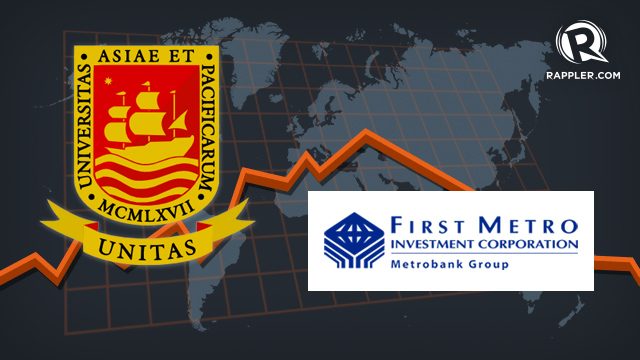SUMMARY
This is AI generated summarization, which may have errors. For context, always refer to the full article.

MANILA, Philippines – Seeing a slower buildup of government spending, First Metro Investment Corporation and the University of Asia and the Pacific (UA&P) have lowered their Philippine economic growth forecast to 6.5% to 7% this year, from an earlier projection of 7% to 7.5%.
“The 7% growth in the 2nd half of 2017 may not be enough to offset the slowdown in the 1st half. What they should do is not to change the course of the public-private partnership (PPP) projects that have already been rolled out, because changing balls midway will cause delay,” UA&P economist Victor Abola said on the sidelines of a media briefing in Makati City on Wednesday, July 5.
Among these delayed infrastructure deals are the South Line of the North-South Railway Project and the 5 regional airports, which shifted the funding from the PPP mode to official development assistance or the national budget.
Abola’s sentiments were echoed by First Metro president Rabboni Francis Arjonillo, who said, “We expect the Philippine economy to grow at a slower pace if government spending does not accelerate before the end of the year.”
Despite a recovery in agriculture and robust growth in exports, the gross domestic product (GDP) grew slower to 6.4% in the first 3 months of 2017, a decline from the 6.6% growth during the 4th quarter of 2016 and 6.8% in the 1st quarter of 2016. This is mainly due to slow implementation of big-ticket infrastructure projects and high base effects due to election-related spending.
“We are quite concerned about infrastructure spending. It is not just about money. The real problem here is technical competence. Normally, lack of competence comes from the government sector, while technical expertise is easily available among the private groups,” First Metro chairman Francisco Sebastian said. (READ: For Dutertenomics to work, the President has to take charge)
“It is really worrisome. What I would love to hear from the President is that he will pursue all the previous admin’s projects and then he will add more,” Sebastian told reporters.
Strong fundamentals
Despite the slow infrastructure spending, First Metro said the country’s economy will remain strong, underpinned by the double-digit rise in capital goods imports, steady increase in foreign direct investments, and resurgence of manufacturing. Other growth boosters include the steady expansion of remittances from overseas Filipino workers (OFWs), the business process outsourcing (BPO) sector, and tourism.
Arjonillo added that the implementation of the Comprehensive Tax Reform Program (CTRP) seen early next year “would also give our economy a push.”
First Metro maintains its inflation forecast of 2.8% to 3.2% for 2017 as food prices are seen to remain stable and oil prices are expected to remain low due to increased crude oil production and higher US shale oil output.
The investment arm of the Metrobank group also expects OFW remittances to sustain its 2% to 4% growth in 2017, supported by the improvement in the global economy.
‘Not political’
Meanwhile, First Metro’s and UA&P’s projection for exports is pegged at 10% to 14% this year, buoyed by the strong growth of the Philippines’ biggest trading partners, the United States and China.
Exports to the European Union and the Association of Southeast Asian Nations (ASEAN) have also expanded, given their improved economic performance and outlook.
As for imports, these will “likely grow by 8% to 12% – lower than the beginning of the year forecast of 10% to 14% due to lower oil prices,” according to First Metro and UA&P.
First Metro also maintains its peso-dollar forecast at an average of P51 against the greenback. “The Philippine peso will remain under pressure as the US economy continues to gain traction, leading to the strengthening of the US dollar,” Abola said.
According to the economists, financial markets are unfazed by the unrest in Marawi City in Lanao del Sur, the imposition of martial law in Mindanao, and the deadly attack on Resorts World Manila.
“People realize these are isolated. Overall growth story of Philippine economy remains intact. So far, as it is now, we are not so concerned. But of course, it won’t be concluded soon,” First Metro executive vice president Justino Ocampo said.
Sebastian echoed this, saying: “The political unrest hasn’t spread beyond Marawi. It is important that it doesn’t become contagious… The fundamentals of the Philippine economy remain not to be political like the OFW remittances and others. They will reassert themselves.”
For Abola, the Supreme Court’s decision to uphold President Rodrigo Duterte’s declaration of martial law in Mindanao is positive for the business community.
“Martial law is a local issue. If you ask businessmen, this even gives the government the chance and the legroom to resolve the conflict there. Even Marawi is not mainstream in Mindanao. Also this is the President’s kingdom, he will not allow its economy to be affected,” Abola said. – Rappler.com
Add a comment
How does this make you feel?
There are no comments yet. Add your comment to start the conversation.